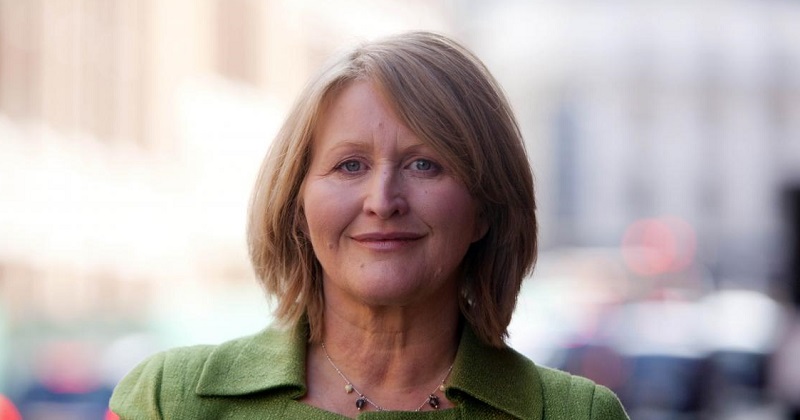Ministers should commit to making children “better-off” rather than talking about increasing numbers attending ‘good’ or better schools, the outgoing children’s commissioner will say tomorrow.
Anne Longfield will use her last speech in the role to launch a broadside against government, claiming she has often had to “force officials and ministers to the table” to talk about vulnerable pupils.
Instead of talking about increasing the number of children going to a good or outstanding school, I want the government to commit to making children better off
She will warn that many in Whitehall view children as “remote concepts or data points on an annual return”, causing some to “fall through the gaps”.
And she will say that failing to set a “clear goal that’s about children’s lives” risks repeating “the mistakes of the past ten years”, when successive governments have focused on school improvement targets “without noticing” that some outcomes are getting worse.
In response, the government pointed to its “commitment to level up opportunities and outcomes”, and thanked the children’s commissioner for her “dedication and her challenge”.
Longfield will leave her post at the end of this month, and will be replaced by academy boss Dame Rachel de Souza.
Appointed in 2015, the former children’s charity boss has often been a thorn in the side of ministers, regularly criticising government policy.
Danger ‘level up’ pledge will be ‘just a slogan’
She will warn tomorrow that a pledge to “level up” will be “just a slogan unless it focuses on children”, and say all political parties should “set a clear goal that’s about children’s lives, not the institutions they attend”.
Ministers frequently point to increases in the number of pupils attending schools rated ‘good’ or better by Ofsted as evidence that their policies are working.
But researchers have warned the statistic is “flawed” because it fails to take into account of pupil number growth, and the fact that until recently ‘outstanding’ schools were generally exempt from reinspection.
“Instead of talking about increasing the number of children going to a good or outstanding school, I want the government to commit to making children better off,” Longfield will say.
She will say she wants the government to commit to reducing the number of children starting schools with developmental issues by 80 per cent, or cut the number of children leaving education without qualifications by 60 per cent within five years.
“Otherwise, we will repeat the mistakes of the past ten years, when governments have focussed on school improvement targets without noticing that the outcomes for children attending these schools are, overall, getting worse.”
The children’s commissioner’s office pointed to government data which shows level 2 attainment at 19 has been falling for several years.
‘National scandal’ that 1 in 5 leave without qualifications
Longfield will also point to research by her office in 2019 which showed almost a fifth of pupils leave education without five GCSE passes or equivalent.
“That is abysmal. I don’t know what’s more shocking: that these things happen, or that they’re hardly recognised. No one can honestly believe that 20 per cent of children are incapable of achieving basic qualifications. It should be a national scandal”

The children’s commissioner is an independent national role sponsored by the Department for Education, with a responsibility to promote the rights, views and interests of children. As such, the role requires regular engagement with ministers and Whitehall.
Longfield will say tomorrow how she had been “shocked to discover how many officials have never met any of the children they are responsible for”.
“So many seem to view them as remote concepts or data points on an annual return. This is how children fall through the gaps – because too often the people in charge of the systems they need simply don’t see them and try to understand their world.”
‘I’m fed up with hearing ‘we don’t know’ from people whose job it is to know’
She will also say that the issues holding many children back are not being tackled, saying she is “fed up with hearing ‘we don’t know’ from people whose job it is to know”.
“I have to force officials and ministers to the table, to watch them sit through a presentation, maybe ask a question, and then vacantly walk away. I do not believe this truly reflects the extent of government and the public’s commitment to helping children succeed.”
She will also criticise “siloed thinking” at the Treasury, which she said had “consistently refused to undertake analysis of the cumulative impact of multiple spending decisions on families”.
A government spokesperson said protecting vulnerable children had been “at the heart of our response to the pandemic, driven by our commitment to level up opportunities and outcomes”.
“Anne Longfield has been a tireless advocate for children, and we’re grateful for her dedication and her challenge on areas where we can continue raising the bar for the most vulnerable.”








I fully agree with Longfield’s analysis except for one: her opinion that anything less than Level 2 qualifications, defined by her as 5 GCSEs level 4 or above, means young people with Level 1 qualifications have no qualifications at all. Level 1 qualifications have a value: they demonstrate a basic level of competence. It’s a pity Longfield didn’t argue for a recognition of Level 1 qualifications instead of dismissing them.